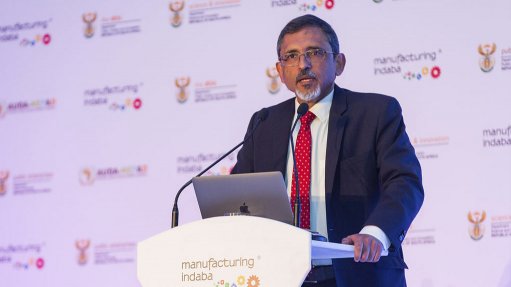
As Africa strives for economic advancement, the manufacturing sector remains a critical driver of growth and development. However, several challenges continue to impede the sector's expansion across the continent. In 2024, these challenges stand as formidable barriers to Africa's manufacturing potential and they include:
Infrastructure Deficiencies: Inadequate infrastructure, including transportation networks, energy supply, and logistical services, poses a significant obstacle to manufacturing growth. Insufficient infrastructure increases production costs, hampers distribution efficiency, and diminishes competitiveness in the global market.
Access to Finance: Limited access to affordable finance restricts manufacturers from investing in modern technology, expanding operations, and enhancing productivity. The lack of financing options, particularly for small and medium-sized enterprises (SMEs), stifles innovation and hinders business growth.
Skills Gap and Human Capital Development: The manufacturing sector demands a skilled workforce proficient in modern manufacturing techniques and technologies. However, a prevalent skills gap across Africa hinders industry growth, as educational systems often fail to provide relevant training and technical skills.
Trade Barriers and Tariffs: Non-tariff barriers, trade restrictions, and complex customs procedures obstruct intra-regional trade and hinder the development of regional value chains. Simplifying trade procedures and reducing tariffs within regional blocs can stimulate manufacturing activities and improve market access.
Political Instability and Security Concerns: Political instability, conflicts, and security challenges in certain regions disrupt manufacturing operations, deter foreign investment, and undermine supply chain reliability. Persistent conflicts pose a threat to production, infrastructure, and investor confidence.
Technology Adoption and Innovation: Limited adoption of advanced technologies and innovation in manufacturing processes impedes productivity gains and competitiveness. Access to affordable technology solutions and barriers to technology transfer hinder manufacturing modernisation efforts.
Energy Access and Reliability: Inconsistent power supply and high energy costs pose significant challenges to manufacturing operations. Inadequate electricity infrastructure leads to frequent blackouts and increased reliance on costly backup generators, elevating production expenses.
Regulatory Environment and Red Tape: Cumbersome regulatory processes, bureaucratic inefficiencies, and corruption hinder business operations and deter foreign investment. Streamlining regulations, improving governance, and enhancing transparency are essential for fostering a conducive business environment.
Addressing these challenges requires collaborative efforts from governments, private sector stakeholders, and development partners. The Manufacturing Indaba scheduled for 22 – 23 October 2024 in Johannesburg, South Africa, will be unpacking solutions to the challenges and how to overcome them to unlock the growth potential for Africa’s manufacturers. Implementing targeted policies, investing in infrastructure and human capital, promoting regional integration, and fostering innovation are crucial for unlocking Africa's manufacturing potential and driving sustainable economic development.